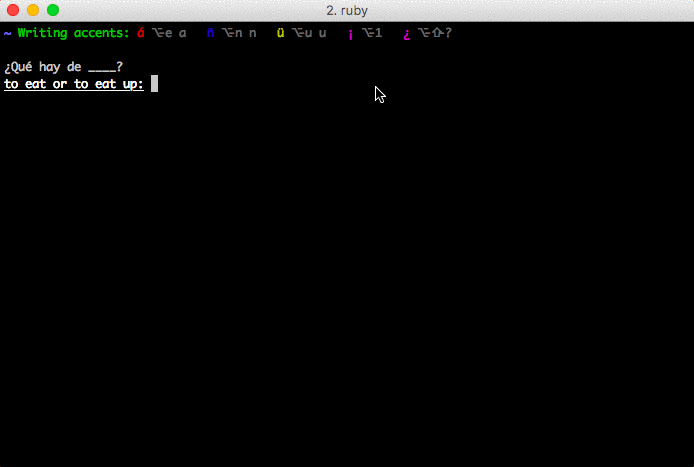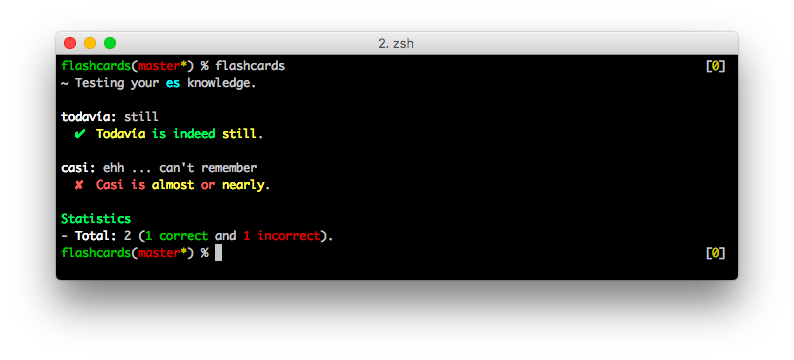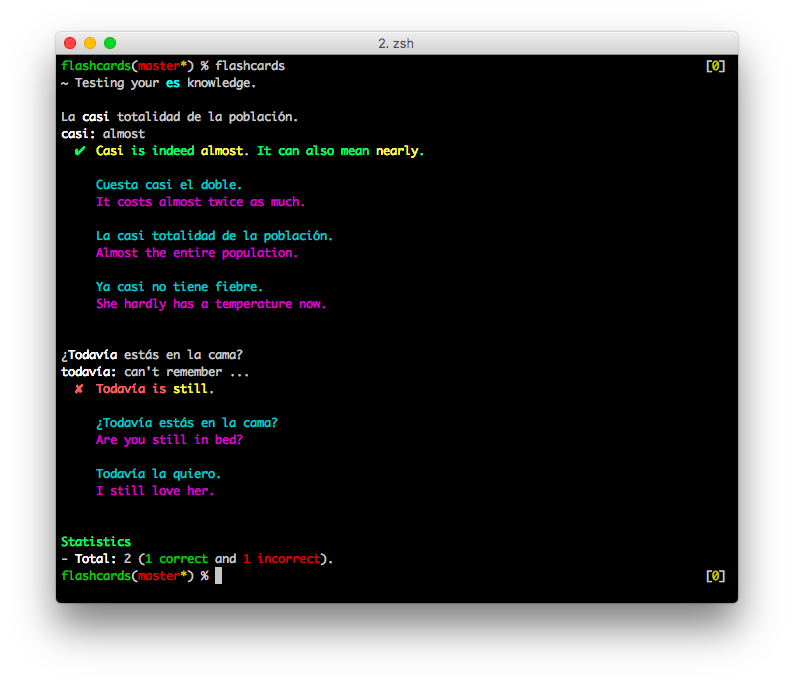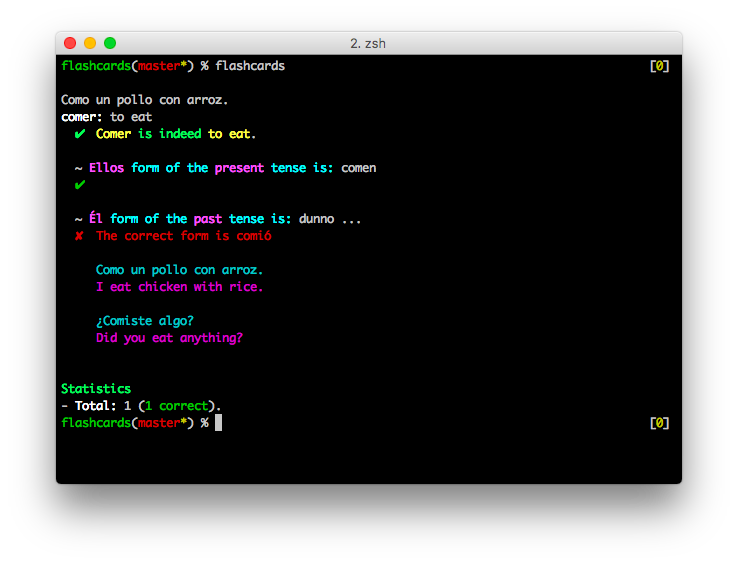Flashcards for learning languages. Like Anki, but with an actually usable interface and support for conjugations of regular and irregular verbs.
There are many language learning apps out there. They are all missing one big thing and that is context. You will learn different vocabulary based on your objectives. Different Spanish is used in business, in daily situations, in books and in tango songs. Also there will be considerable differences in vocabulary (and also in pronunciation and even grammar) between different countries.
None of it the language apps take in consideration and this is why the only vocabulary that matters is the one you actually come in touch. Which means you need to write down words you come across and don't know and to learn them.
It is more work, but it's the only way I know to get results without wasting time learning vocabulary you don't need.
This is the recommended way. You don't need to worry about having the correct version of Ruby, LibXML etc. Just grab it from DockerHub:
docker pull botanicus/flashcards
To avoid unnecessary typing:
alias flashcards="docker run -it -v ~/.flashcards:/data -v ~/.config:/config botanicus/flashcards"Note that the flashcards gem available on rubygems.org is not this one!
gem build flashcards.gemspec
gem install flashcards-*.gem
First let's install the software and add a few flashcards. Let's say you're learning Spanish:
# Let's add Spanish into our languages.
flashcards init es
# Add data.
flashcards add todavía still
flashcards add casi almost,nearlyAnd run flashcards. Here you go!
OK, it works. However it's important to learn in context, so let's make it more useful and add some examples.
Run flashcards edit and paste the following data into the file:
---
- :expression: todavía
:examples:
- "¿Todavía estás en la cama?": "Are you still in bed?"
- "Todavía la quiero.": "I still love her."
:translation: still
- :expression: casi
:translations:
- almost
- nearly
:examples:
- "Cuesta casi el doble.": "It costs almost twice as much."
- "La casi totalidad de la población.": "Almost the entire population."
- "Ya casi no tiene fiebre.": "She hardly has a temperature now."It's the same as there was, except of the added examples.
When you now re-run flashcards, you should get something more useful:
As with any other flashcard software, flashcards is all about the fancy learning curves, so you don't get tested over and over on vocabulary you already know (hello Duolingo!).
The exact schedule is next day, in five days, in 25 days, in 125 days and then every 2 years.
Also if you add a lot of new vocabulary, flashcards won't test you on everything at once. It will prioritise vocabulary that is time to refresh (according to spaced repetition), and only adds limited number of the new vocabulary at a time.
If a flashcard is tagged with verb, you will be automatically asked 1 random
conjugation of each tense. Currently only Spanish is supported, although adding
new rules is easy.
The file ~/.config/flashcards.yml is an array of flashcards saved in YAML.
- Key
expression(string, required): the word in the language you're learning. - Key
translation(string) ortranslations(listofstrings): translation to English or whatever language you already know. Note that for flashcard will parsetranslationif it's an array andtranslationsif it's a string as well (and will format it correctly on save), so don't worry about it too much. - Key
silent_translation(string) orsilent_translations(listofstrings): same as the above, except these won't be listed as synonyms. When asked what veinte is, 20 is a valid answer. Or primer/primera/primero are all valid, but they are not synonyms, just different forms of the same word. - Key
exampleorexamples(listof examples). Each example is akey:valuepair of[expression, translation]. - Key
hint. This is currently under review. - Key
tag(symbol) ortags(listofsymbols). It can contain anything, currently flashcards support:verbtag to ask for conjugations. Only Spanish is supported at the moment, although adding new rules is easy, check outlib/flashcards/verb.rb. - Key
note(string). Note to be displayed after the word is answered. It's meant to mention irregular forms, differences from the translation (for instance to be can be eitherserorestar, they are used differently, so the note would explain where to use which one). - Anything else will be saved.
---
- :expression: todavía
:translation: still
:examples:
- "¿Todavía estás en la cama?": "Are you still in bed?"
- "Todavía la quiero.": "I still love her."I have the following code in my ~/.zshrc:
flashcards has-not-run-today && flashcards
It's pretty self-explanatory: if the flashcards hasn't run today, they will, once I open a new shell window. This way I learn every day without having to think about it.
Run flashcard -h to see all the options.
What is that? I see. Well, the colours are cool.
~ My mum.
Why don't you get a real job like your grandpa? I don't know what this freelancing really is, but I don't think it's good for you!
~ My grandmother.
Jesus Christ dude, you need to get laid!
~ My best friend.
That's the shit pal!
~ Random homeless guy whom I paid money to review it.
As you can see, the credentials are bullet-proof.





